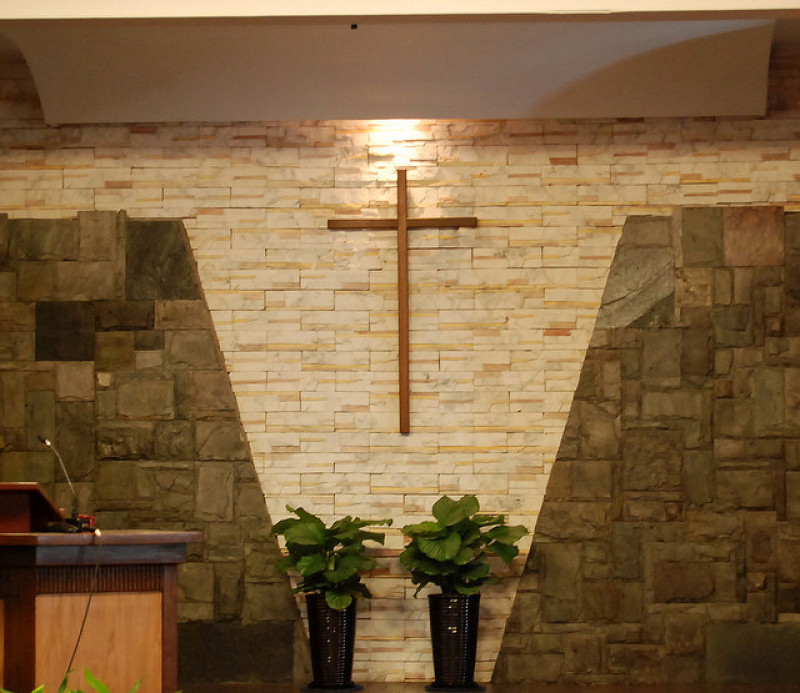
A Chinese pastor who defended churches facing demolition and contacted the US consulate in Shanghai and foreign journalists was imprisoned along with his wife and son on April 26.
Wen Xiaowu leads a house church in Zhejiang province (which is also called the "Jerusalem of China") was accused by the authorities for disturbing social order and hindering public services, according to China Aid.
Xiaowu and his wife both gave legal consultation to churches who are facing cross demolition campaign.
They had met with the US consulate members and foreign journalists to give them an update about the cross demolition situation in China.
The family is not allowed to meet with relatives, and their house was ransacked by the authorities who also took their personal items including laptops.
"He [Wen] is a man with integrity and passion who is always ready to help others. Despite the constant threats state security agents posed to him and his family in the past few years, he and his wife have been boldly providing legal counsel for churches and persecuted human rights defenders in Zhejiang," said China Aid President Bob Fu. "I urge the U.S. government to work with the Chinese authorities for the immediate release of the Wen family and other innocent church leaders who are under arrest."
Since the year began, multiple churches have been demolished in Zhejiang and neighboring province of Fujian.
Some of the churches were not registered with the local government. A Yulin Furen Christian Church in Fujian was registered before, but due to changing regulations over the last several years, it was not registered at the time it was deemed unauthorized by the officials.
"Previously, it was registered and approved, but not in recent years," an individual from the Fuqing Christian Association told China Aid. "At this time, a real estate certificate is required for registration [in Fuqing] ... [Therefore], we cannot just go register, even if we want to do so. There are still many [churches] that have not registered."
However, no reason was given to demolish many other churches, according to eyewitnesses.
"The Chinese authorities have no reason for the demolition of the church. All of our churches will defend to the death and refuse to let them break down. This is religious persecution with no right to suppress us," said Wen Xiaowu, a local believer.
Some cross demolitions were also done secretly by the authorities. Waipu church in Wenzhou had its cross removed by the officials in the early morning hours with no heavy equipment used, so that the congregation would not be alerted of the action. Authorities also confiscated the church's surveillance and video equipment.
"These demolition personnel came suddenly, and many believers did not know [what was happening]," recounted a church who only gave his last name Wu.
Another church in Wenzhou was also demolished late at night, Wu said.
The authorities have faced stiff protests from congregations who knew that their church was targeted for cross removal or demolition. Local media reported that last year in July, a team of about 600 people comprising police, fire protection, and urban management met with strong resistance from members at Kau Yan church in Shuitou town of Zhejiang province.
Huge cranes, fire engines, and ambulance were mobilized to break down Kau Yan's cross. The church members confronted the police, who also used batons to injure people. Four people were seriously wounded and hospitalized in Wenzhou. The demolition was unsuccessful and the authorities returned after a struggle lasting over an hour.
In April, a pastor's wife was buried alive after she stepped in front of a bulldozer as it proceeded to demolish Beitou Church in Henan province, because the land on which it stood was claimed by a real-estate developer. After about two weeks the land was restored to the church by authorities, and will be used for religious purposes.


















